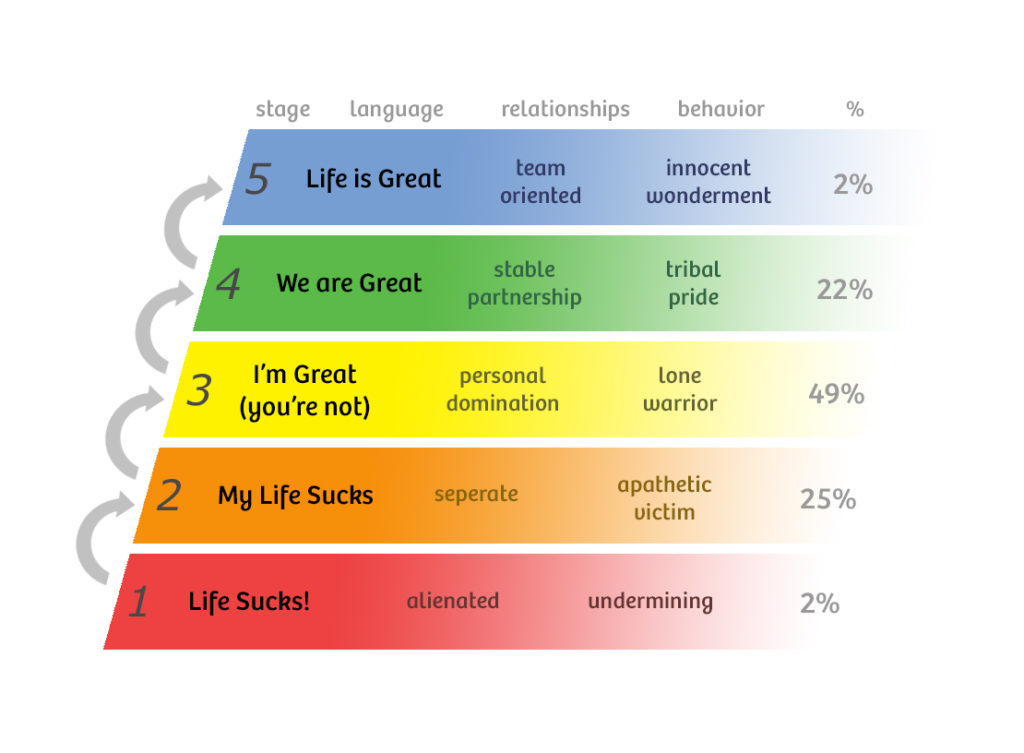What It Is:
Tribal Leadership is indeed a book written by Dave Logan, John King, and Halee Fischer-Wright. The book was published in 2008. The authors draw on their research and experiences to explore the stages of organizational culture and leadership within a tribal framework.
Key Concepts:
- Five Stages of Tribal Culture:
- The book presents five stages of tribal culture, ranging from Stage One (“Life sucks”) to Stage Five (“Life is great”). Each stage represents a different level of collaboration, effectiveness, and leadership.
- Leadership at Different Stages:
- Tribal Leadership emphasizes that effective leaders can influence and shift the culture of their organizations by understanding the predominant stage and guiding their teams toward higher stages.
- Linguistic Patterns:
- The authors explore linguistic patterns and communication styles associated with each stage. Understanding these patterns helps leaders identify the cultural stage of their organization and implement strategies for positive change.
How to Use It:
Using Tribal Leadership in Agile Coaching:
- Team Assessment:
- Use the principles of Tribal Leadership to assess the cultural stage of an Agile software delivery team. Identify the prevailing mindset and communication patterns within the team.
- Leadership Development:
- Tailor leadership development strategies based on the identified stage. Help leaders adopt behaviors that contribute to a positive tribal culture, fostering collaboration and shared values.
- Communication Strategies:
- Adjust communication strategies to align with the linguistic patterns of the team’s cultural stage. Encourage positive language and promote a shared sense of purpose.
- Cultural Transformation:
- Guide the team through cultural transformation by addressing underlying beliefs and assumptions. Facilitate activities and discussions that challenge negative cultural aspects and reinforce positive ones.
Tribal Leadership provides a valuable framework for understanding and influencing organizational culture. Applying its principles in Agile coaching can contribute to the development of high-performing, collaborative teams.
References:
- “Tribal Leadership” by Dave Logan, John King, and Halee Fischer-Wright:
- The book itself is a comprehensive resource that provides detailed insights into the concept of Tribal Leadership and practical guidance on fostering positive cultural change.
- Author Talks and Workshops:
- Look for talks, workshops, or interviews by the authors. They often share additional insights and real-world examples that can enhance your understanding and application of Tribal Leadership.
- Tribal Leadership Website:
- The official Tribal Leadership website may offer additional resources, case studies, or tools related to the framework. Check for any updates or supplementary materials.
Visit the Agile Coach’s Toolkit for more definitions, models, theorems and stuff.

